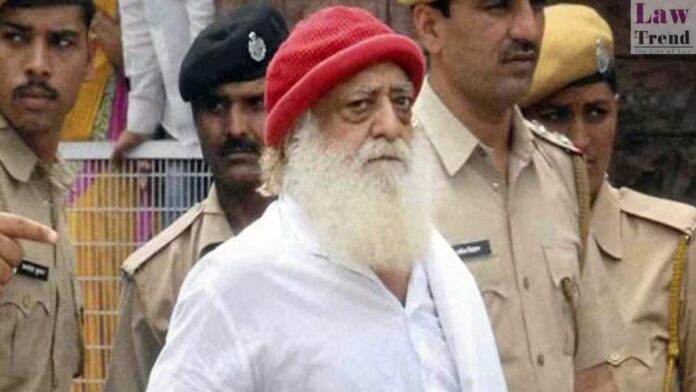In a notably divided ruling on Friday, the Gujarat High Court addressed Asaram’s plea for temporary bail, resulting in a split verdict. Justice Sandeep Bhatt, providing a dissenting view, articulated concerns that the plea primarily sought to extend an interim bail initially granted by the Supreme Court on medical grounds earlier this year, without substantive use of the allotted time.
Asaram, the 86-year-old self-styled godman, who was convicted of rape in 2013 and is currently serving a life sentence, approached the high court requesting six months of bail to undergo a 90-day Panchkarma therapy, an Ayurvedic treatment regimen. Despite his age and medical claims, Justice Bhatt pointed out a lack of ongoing medical treatment during the interim bail period which spanned from January 7 to March 31, as per the Supreme Court’s order.
“Though the applicant visited several medical facilities, both allopathic and Ayurvedic, between January 28 and February 19, 2025, follow-up treatments were conspicuously absent,” stated Justice Bhatt in his order. He emphasized that Asaram’s actions suggest a desire to merely extend his temporary freedom without valid justification.
On the other side of the bench, Justice Ilesh J Vora granted the plea for a three-month bail, citing the advanced age and severe health conditions of Asaram, including ischemic heart disease and hypothyroidism among others. According to Justice Vora, the medical board’s advice and the need for specialized care highlighted the necessity for temporary release, asserting that “the health condition of a human being is paramount” as underscored by the right to life under Article 21 of the Indian Constitution.
However, Justice Bhatt strongly disagreed, emphasizing the gravity of Asaram’s conviction for rape under Section 376 of the IPC and his life sentence. He questioned the real need for further bail on medical grounds, especially since the plea failed to show adequate utilization of the previously granted bail period for the intended medical treatment.
The contrasting decisions have now necessitated the involvement of a third judge, as the case will be referred back to the Chief Justice for further deliberation.




